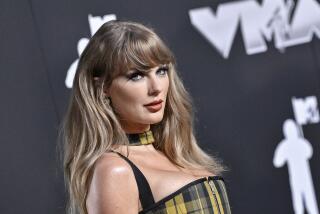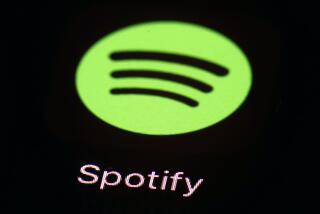Spotify CEO to musicians: Do you want ‘zilch’ or $2 billion?
An artist in the range of Taylor Swift could make more than $6 million a year from Spotify at its current size, the music streaming service’s chief executive said Tuesday in a rebuttal to the criticism he’s faced the past week.
“Our interests are totally aligned with yours,” Daniel Ek told musicians in a blog post. “We use music to get people to pay for music. The more we grow, the more we’ll pay you.”
But Ek’s note is unlikely to change Swift’s tune. Last week, the pop singer pulled tracks she had made available on Spotify. She and other critics are upset that royalty rates for streaming remain a fraction of what artists could make from either CD sales or digital downloads. From the $2 billion in royalties that Spotify does pay, only a small chunk makes it way down to songwriters after music publishers and record labels take their cut.
Ek didn’t address the issue directly, acknowledging that royalty streams go through the records and labels. Instead, he urged artists to be patient, suggesting that Spotify was asking consumers to adopt a new behavior.
“Here’s the overwhelming, undeniable, inescapable bottom line: The vast majority of music listening is unpaid,” Ek said, citing radio, YouTube and illegal downloading. “If we want to drive people to pay for music, we have to compete with free to get their attention in the first place.”
“Piracy doesn’t pay artists a penny – nothing, zilch, zero,” Ek wrote.
Spotify has brought more than 50 million people into its service with free, ad-supported listening. Ek said Tuesday that about 12.5 million of them have become subscribers for $10 a month, up from 10 million subscribers in May. The majority of subscribers are younger than 27, a generation that Ek said was raised with piracy and never expected to pay for music.
But they have paid for Spotify to have more control over the music they can listen to on mobile devices and don’t have to deal with ads.
“We’re trying to build a new music economy that works for artists in a way the music industry never has before,” Ek wrote.
Chat with me on Twitter @peard33







